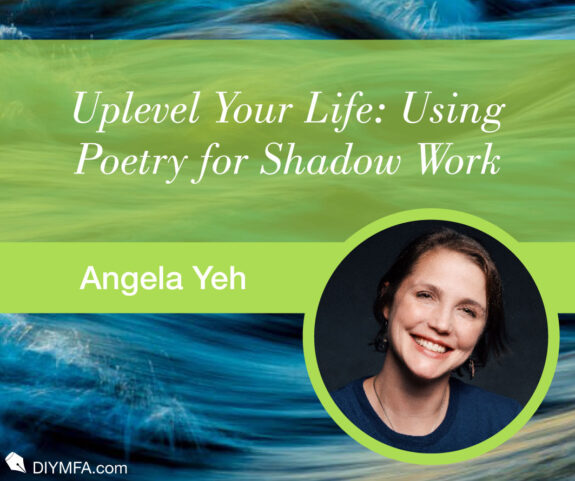Why do we do the things we do? Or, why don’t we do the things we say we most want to do? We all want to eat healthier and exercise, and anyone reading this article wants more magic and writing in their lives. So, why is it so difficult to wake up early to write, get to the gym (or outside), and do what we know is best for us?
Spoiler alert—it isn’t because we’re lazy, unfocused child-adults with no willpower.
Shame and the Shadow
Let me introduce you to…Carl Jung. The trailblazer. The rebel. The scamp. The shadow work pioneer.
Jung believed that our shadow selves contain our repressed emotions, thoughts, desires, insecurities, and fears. We repress these things because we’ve been conditioned to associate these feelings or thoughts with something embarrassing or shameful. We don’t want to be judged or rejected by others.
Most of us have been conditioned to “be positive” and “look on the bright side.” I internalized those concepts so well that I stayed in not one but two toxic relationships as an adult, much longer than I should have. (Do I get the third one free?)
I can assure you that looking only on the bright side doesn’t keep the bad stuff from happening. I’ve learned what I don’t know about myself can still kick me in the ass.
A man who is possessed by his shadow is always standing in his own light and falling into his own traps…living below his own level.
Carl Jung
Jung believed if we are consistently finding ourselves stuck, or ending up in similar unhealthy situations (or relationships) again and again, we have shadow work to do. And, of course, all of this is a goldmine for the writer. The darker, the better, really, isn’t it? Everything is grist for the mill.
Shadow work is the writer’s work.
It’s what we’ve been called to do, whether we know it or not. Doing this work is a way of deepening self-awareness and self-reflection, two things every great writer needs.
Yeah, but you don’t want to and it’s scary, I can hear you now. Heck, maybe that’s just me.
Shadow work can feel scary. But what’s scarier? Exploring aspects of ourselves that might be holding us back, or being held back from what we want and never knowing why?
If we want off the hamster wheel of self-sabotage and self-destructive behaviors (and the shame spiral that accompanies it), this is something we should try.
Using Poetry to Engage in Shadow Work
Poetry, more than any other type of writing, is particularly suited for shadow work. You can’t drone on for pages, getting lost in melancholy. You must cut to the quick, to the heart of the matter.
Using poetry, you can hem the dark thoughts into a nice, comforting ballad, or my favorite, the Haiku—something with strict rules to contain the mess that is our whole selves.
Be aware of when you have a strong reaction to something, either positive or negative. That’s it. That’s the first step—to get still and to notice. Two things every poet needs to do in order to write well.
Here are a few more writing prompts to get you started:
When was the last time I felt at peace?
When is the critical voice in my head the loudest?
When is it the quietest?
When do I feel angry? Why? How does it feel in my body?
Go slow, be kind to yourself, and if emotions get too scary, you can and should get professional mental health help, especially when dealing with trauma. The impact of a good therapist is life-changing.
The second step is to allow yourself space to process what you’ve noticed. This isn’t a six-day cleanse. This is going to take some time.
The last step is probably the hardest, and that’s to accept and integrate those traits. There are no three-step Powerpoint presentations for this. But there are ways you can tell the work is, well, is working:
Signs You’ve Been Doing Shadow Work:
Judging: You judge other people (and yourself) less. When you’ve made the courageous choice to look at your own darkness and offer yourself kindness and forgiveness, extending that to others is much easier.
Triggers: Other people don’t trigger you like they used to. You notice the behavior, but you no longer feel compelled to respond.
The Blame Game: When a shadow trait pops up, you stop denying it and blaming yourself for not having everything under control. For some, this deepens into not blaming the person or event that triggered the response in the first place. You get curious, but you don’t get ashamed.
Not Special: You realize you’re not special. You’re unique, wonderful, and lovely, and no one is exactly like you on the whole planet with all of the memories, dreams, and potential for greatness. But you’re not abnormal. The fates, God, or the universe didn’t set you aside at birth to suffer or cause your loved ones to suffer. You’re just you. Flawed, egotistical, with some trauma wounds from other people who didn’t do their own shadow work.
Confidence: Slowly, over time, you gain confidence in yourself and your abilities based on self-awareness. You know you’re worthy. You know if you write that poem or release that memoir, everything will be okay. You won’t be shamed or unloved. And if you are, you understand they are in pain and haven’t been doing their own shadow work.
Peace: Your life is more peaceful. When you love your whole self, every other interaction flows more positively. And when you mess up, because you will, you’ll be able to respond with self-compassion, awareness, and a sweet alertness to what is changing inside of you.
In short, and because I love you, I encourage you to start noticing what you’re feeling and when. And next time you write the poem that breaks open someone else’s trauma and lays bare all they’ve been struggling with, and they email you to thank you for showing them they aren’t alone, you can turn around and thank me. No, that’s not right; thank yourself. But start. And then tell us what feeling you’re most curious about today.
Extra Resources for the Shadow-Curious:
Shadow Work for Poets: Prompts to Guide Your Poetic Journey by Dimitri Reyes and Jacinia Perez
Shadow Work Journal for Self-Love by Latha Jay and Valerie Inez
The Benefits of Shadow Work and How to Use It On Your Journey

Angela Yeh is an East Coast Canadian native who grew up a stone’s throw from Stephen King’s Maine. She now lives in Texas and sees Chuck Norris on the always. Angela is a short tall-story-teller who loves to garden, write about magic, and eat cake. If you’d like to check out her first published novel, A Phoenix Rises, she will send you cookies. You can follow her antics on Twitter and Instagram or on her website.







